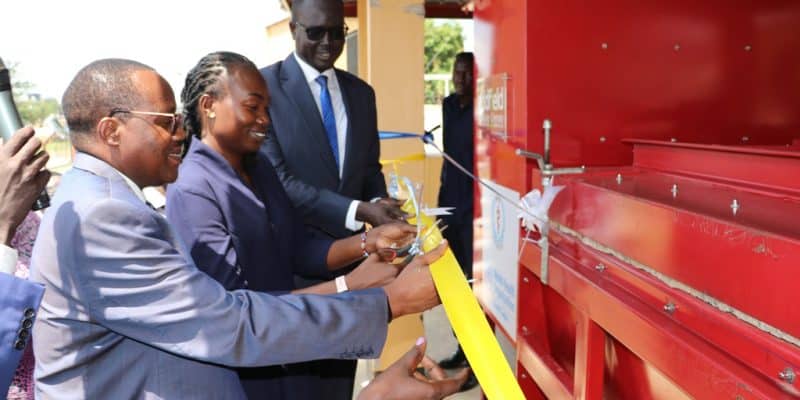In South Sudan, Juba Teaching Hospital is now treating its medical waste. On 15 August 2023, the health facility benefited from a new system, which was received and inaugurated by the South Sudanese Health Minister, Yolanda Awel Deng Juach.
Medical waste has been disposed of haphazardly at Juba Teaching Hospital in the capital of South Sudan since it opened in 1975, but the World Health Organisation (WHO) has found an alternative way of treating the waste. On 15 August 2023, the United Nations public health agency handed over a medical waste management system to the South Sudanese Minister of Health, Yolanda Awel Deng Juach, who then inaugurated it.
The new facility is equipped with three rooms dedicated to separating medical waste, a 150 mm slab housing an “ultra-modern temperature” incinerator, two pits for sharp and organic waste, a water point and a fuel tank.
Protecting human health and the environment
The WHO-funded system also has a medical waste cleaning area. This operation will facilitate the separation of the various components contained in the waste collected (hazardous waste, non-hazardous waste, etc.). “At Juba Teaching Hospital, hazardous waste accounts for up to 20% of all medical waste produced and represents a major challenge,” says the WHO. A chain-link fence secures the entire cleaning area.
“By prioritising the correct handling of infectious waste and sharps, and providing comprehensive training to staff on waste management practices, we can pave the way for a safer and healthier future for all,” says Fabian Ndenzako, WHO’s acting representative for South Sudan. The establishment of this medical waste treatment system has also been supported by the Canadian government.
In addition to preserving the environment by preventing the release of pathogens and toxic pollutants, the proper disposal of medical waste at Juba Teaching Hospital will reduce the risks to human health. Improperly disposed of medical waste can contaminate drinking water.
Inès Magoum







